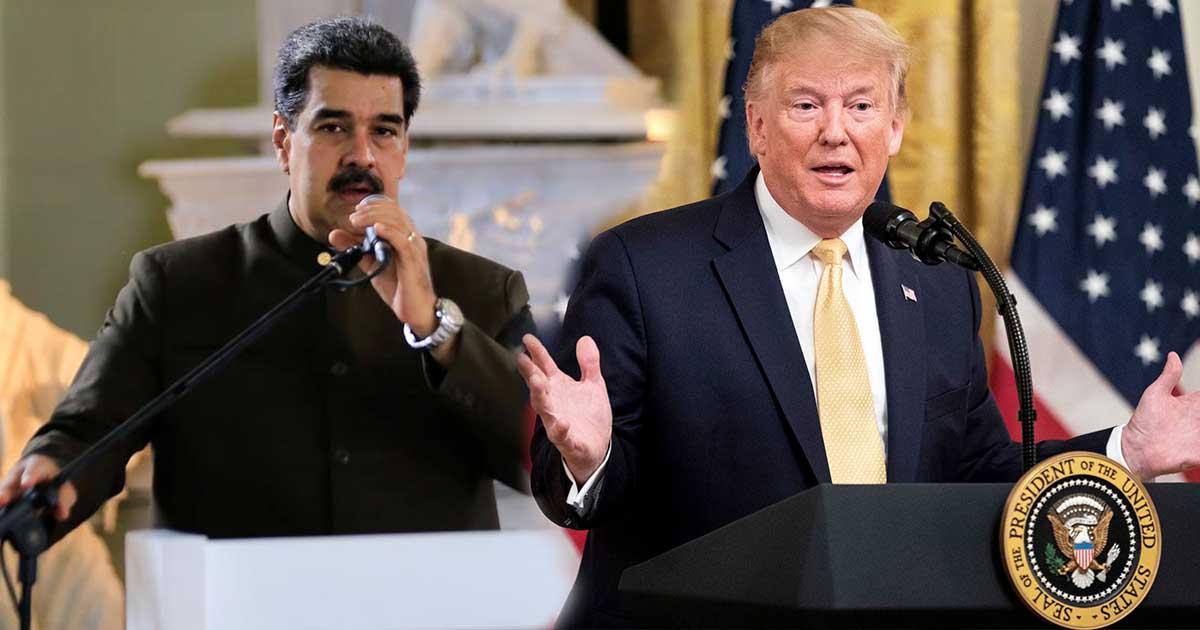News Desk |
Inheriting a complex economic and political landscape from the enigmatic Hugo Chavez, the Maduro government has been plagued by a vast set of problems since it took control of Venezuela in 2013 in a ferociously contested election. The economic problems that began in the time of Chavez reached new heights as Venezuela’s chief export, oil, hit its lowest price in years in November 2014.
The year had been fraught with challenges already as 26 people were killed by law enforcement agencies while suppressing anti-government protests across the country. The situation only worsened from then on.
US orders immediate freeze of Venezuela government assets in dramatic escalation of tensions; stops short of an outright trade embargo. https://t.co/ttKwmuC3ZI
— NBC News (@NBCNews) August 6, 2019
Trump’s action now is his harshest yet against the Socialist Maduro. Not only does it restricts U.S. companies from business with the Venezuela government but also appears to enable possible sanctions against foreign firms or individuals that deal with it.
This is significant when one notes that numerous Chinese and Russian companies do sizeable business with Venezuela.
It was even revealed in May 2019 that Guaido was mulling over the possibility of asking the US for a direct military intervention to take Maduro out of power and install his own regime.
As Juan Guaido and his party disputed the 2018 election results and implored the military to oust Maduro, he was recognized as the legitimate new leader by many European countries and the United States. Ever since the US has been engaged in a fierce effort to oust the usurper they see in Maduro and install the popular Guaido into power.
On August 5, the United States imposed full blocking sanctions on the Government of #Venezuela, to target the former Maduro regime and those who support it. General licenses enable humanitarian aid and protect the government led by @JGuaido. https://t.co/sh8Ju2eGcg
— Secretary Pompeo (@SecPompeo) August 6, 2019
While the popular US narrative was that Venezuela is being torn apart by its decades of socialist policies, the counteracting narrative said that it was actually a US-led economic war on the country that was the source of many of its woes.
A big-corporate-owned mainstream media urges Americans and the world to look at the long food lines and impossibly high inflation in Venezuela to prove that “Communism just doesn’t work.”
However, some say it is economic sabotage by hostile forces, especially the artificially lowered oil prices, which have upset the Bolivarian process and put Venezuelans into hardship.
Read more: Venezuelan military: the muscle behind Maduro
It was even revealed in May 2019 that Guaido was mulling over the possibility of asking the US for a direct military intervention to take Maduro out of power and install his own regime.
While no such move was made, pressure tactics such as this move to freeze government assets have been adopted in a bid to oust the intransigent Maduro.














